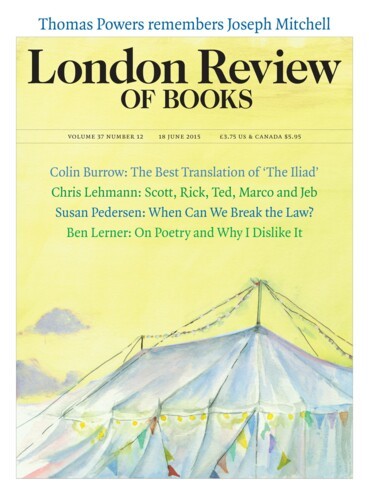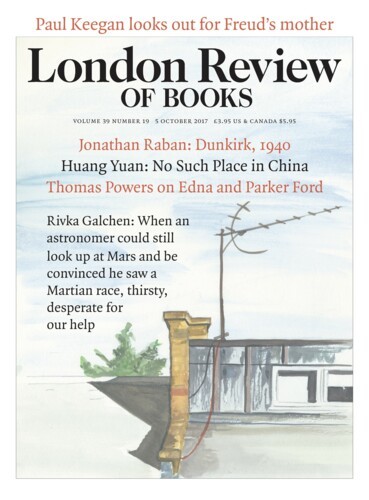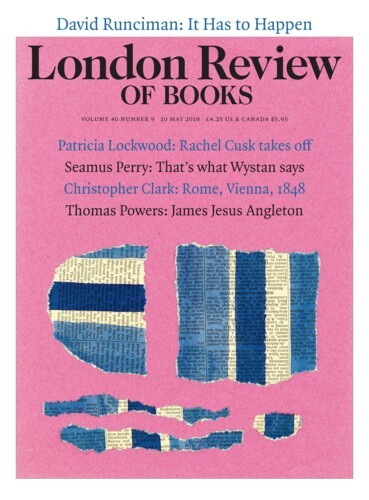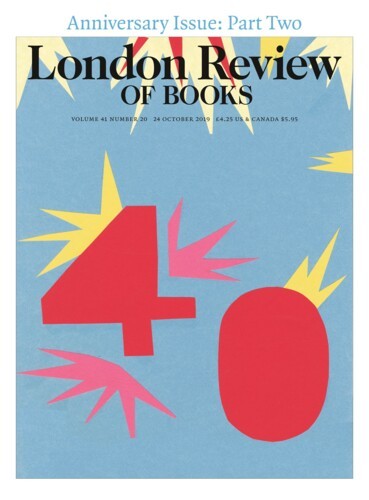All I Can Stand: Joseph Mitchell
Thomas Powers, 18 June 2015
Joseph Mitchell of Fairmont, North Carolina lived one of the classic American lives: dreamy boy in a Southern town with a mother interested in the finer things, read a zillion books in college following no particular plan, decided he was going to get a newspaper job in New York City and become a writer, and by God did. He’d been thinking about New York since a visit in 1918 when he was ten. After one look at the bustling city he told his father: ‘This is for me.’ His father was not pleased then or later.




